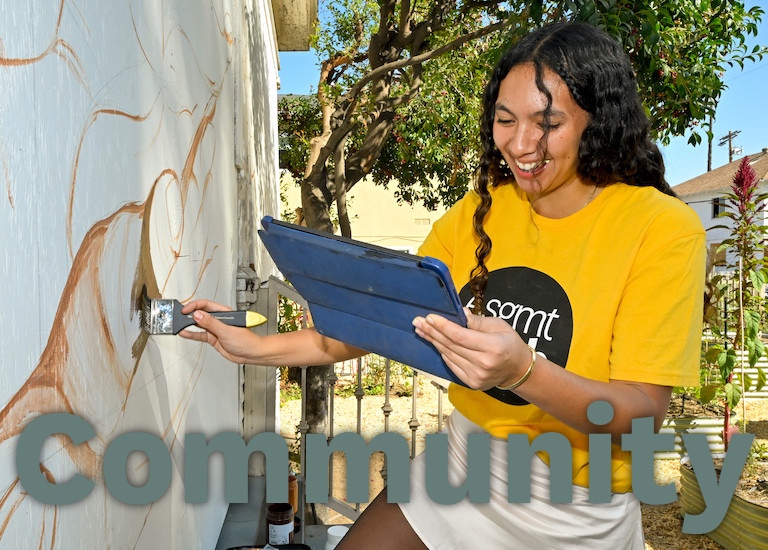Sensory Processing and Autism Network (SPAN)
Sensory Processing and Autism Network (SPAN) is a community-based research network (CBRN) committed to improving outcomes for individuals with sensory processing challenges and their families in everyday life.
By engaging a large network of clinicians, researchers, and other stakeholders, we intend to build a data repository, engage in large-scale scientific studies, and create a roadmap that will promote innovative, precise, and optimally effective approaches to addressing sensory processing challenges experienced by individuals with autism spectrum disorder or other neurodevelopmental disorders, as well as their families, now and for future generations.
Vision Statement
Be the leading hub for the highest level of evidence-based sensory processing research with societal impact.
Mission Statement
Our mission is to leverage our collective expertise, resources, and stakeholders to synergize goals, generate new discoveries, test/implement tailored assessments and interventions, and mobilize knowledge to influence practice, education, and policy.
Clinical Partners
Current Projects
Building the Future: Managing Uncertainty in the Lives of Autistic Children, Families, and Clinicians
Funded by the Responding to Society’s Post-pandemic Occupational Needs (ReSPONs) initiative.
This study uses narrative strategies to better understand people’s lived experiences during the first 20 months of the COVID-19 pandemic, the intersectional effects of health and social inequities and racial injustices, and the complexities inherent in managing uncertainty during this transition. The research team will conduct individual narrative group interviews with family members (n=10) of children with autism spectrum disorder aged 2-18, and with clinicians (n=10) who serve this population. Families with Black, Latinx, and female autistic members will be oversampled in order to examine intersectional effects, and occupational therapists will by disproportionately recruited.
SPAN Project Co-Principal Investigators: Mary Lawlor and Erna Blanche
Building the Future: Managing Uncertainty in the Education of Autistic Children, Teachers and Related Support Services
Funded by the USC Chan Division’s 2021 Lisa A. Test Endowed Research Award, this tag-on expands the ReSPONs-funded Managing Uncertainty study to examine teachers’ and service providers’ unique experiences during the pandemic within the settings of educational systems.
SPAN Project Co-Principal Investigators: Erna Blanche and Mary Lawlor
Clinical Global Impression Scale for Pediatric Occupational Therapy
The goal of this project is to develop a pediatric Clinical Global Impression Scale which will capture the impact of sensory processing challenges on daily activities for use by occupational therapists in clinical or research settings. All SPAN member clinics are participating. A preliminary draft of the tool has been created and a subcommittee was formed to provide feedback on the content and feasibility.
SPAN Project Leaders: Grace Baranek and Elizabeth Phelps MA ’20, OTD ’22
Data Repository
The goal of this project is to develop an online data storage warehouse with common data organized across clinics. All SPAN member clinics are participating. The SPAN subcommittee is working on prioritizing constructs and measures for the repository.
SPAN Project Leaders: Grace Baranek and Leah Stein Duker
Patient-Centered Outcomes Research Institute (PCORI) 2-year Engagement Award
The goals of this project, called Transforming Research: Understanding Sensory Experiences in ASD, Stakeholders Working Together (TRUST) (#95-1642394), are to:
- Establish a diverse alliance comprised of self-advocates, family members and caregivers, clinicians and providers, researchers, and community partners
- Determine research priorities, produce resources, and distribute recommendations related to sensory processing and autism
- Develop a plan for sustainability and examining long term impact
This capacity building stakeholder engagement project was initiated in December 2020 and has met regularly with researchers, clinicians, families, and self-identified autistic stakeholders.
SPAN Project Leader: Mary Lawlor
SPAN Project Co-Leaders: Grace Baranek and Erna Blanche
SPAN Project Co-Leader, Service Providers Stakeholder Group: Michaelann Gabriele
Project Coordinator: Emily Ochi
Co-Leaders, Self Advocate and the Family Stakeholder Groups: Raul Munoz, Kameena Dawkins, and Jennifer St. Jude
Community Partners: 5-Eleven Hoops, Autism Speaks, and Harbor Regional Center
Completed Projects
Chapter on Occupational Therapy and Autism Spectrum Disorder
This chapter was written in response to a request for a description of occupational therapists’ role in the intervention with autism.
Bodison, S. C., Duker, L. S., Nakasuji, B., Gabriele, M., & Blanche, E. I. (in press). Occupational Therapy for Children with Autism Spectrum Disorder and Intellectual and Developmental Disability. In P. McPherson (Ed.), Handbook of treatment planning for children with autism and other neurodevelopmental disorders. Cham, Switzerland: Springer International Publishing.
SPAN Co-Authors: Stefanie Bodison BS ’92, MA ’94, OTD ’10; Leah Stein Duker; Bonnie Nakasuji; Michaelann Gabriele; and Erna Blanche
SPAN Summer Fieldwork Collaborative Program
The SPAN Summer Fieldwork Collaborative Program (SSFCP) was part of the clinical fieldwork experience of Level II occupational therapy students for summer 2020. Twenty-two occupational therapy students participated in a primary clinical placement at one of the SPAN Clinical Partners and engaged in remote clinical activities, including telehealth services, under the direction of their primary clinical supervisor.
In addition, as part of their fieldwork Level II placement, the students engaged in multi-faceted SSFCP fieldwork learning experiences to expand their expertise in telehealth clinical practice and to address clinical and community needs that have arisen during the COVID-19 pandemic. The weekly experiences included the development of an innovative fieldwork project and participation in weekly clinical mentorship sessions (two 2-hour Zoom sessions per week). The mentorship sessions were facilitated by faculty at USC Chan, clinical supervisors, and peers. The weekly sessions focused on the daily dilemmas that students/clinicians encounter in telehealth practice and the practical solutions to challenges inherent in meeting needs during the pandemic.
SPAN Project Leaders: Erna Blanche and Mary Lawlor





